[av_heading tag=’h3′ padding=’10’ heading=’Hello’ color=” style=” custom_font=” size=” subheading_active=” subheading_size=’15’ custom_class=”][/av_heading]
[av_textblock size=” font_color=” color=”]
Venture capitalist Roger Strauch discusses Armenia
Roger Strauch is a first generation American who resides with his family in the Bay Area. He is a successful venture capitalist and chairperson of The Roda Group, which works primarily with cutting-edge high-tech firms. He has built and run several public companies and he has co-founded private companies that have been sold to industry leaders, including HP and Logitech. He is a well-known philanthropist who generously supports education and arts programs in the United States and Armenia. So, why does Mr. Strauch have a passion for things Armenian and why does he frequently travel to Armenia?
The Armenian Reporter had an opportunity to interview Roger Strauch recently.
 |
| The Strauch Kulhanjian Family during a visit to the historic Monastery Complex at Datev. Pictured left to right: Nairi, Paul, Alex, Roger and Julie. |
AR: Roger, could you please tell our readers about your background and how you became a venture capitalist.
RS: Growing up, my family lived in Massachusetts and I successfully launched my first company while in high school. My company employed a team of technicians that provided services to the R & D departments of high-tech Route 128 businesses. I attended Cornell University for my undergraduate degree in electrical engineering and Stanford University for my master’s degree in electrical engineering. I very much enjoy developing an idea into a successful business model, and with the technology in the world changing so rapidly, I focused on the high-growth market of telecommunications. I co-founded a company that I ran for 14 years and when I retired from that venture, I wanted to do for others what my original investors did for me – create an environment that would attract and support the success of ambitious, hardworking entrepreneurs with clever ideas that could solve big problems in enormous markets.
AR: As a venture capitalist, how do you work with a company and what have been some of your successes?
RS: Generally speaking, we are a business-incubator type venture capitalist. We put up the initial funds to validate an idea in the form of a business. The Roda Group, a company that I formed with my college buddy, Dan Miller, not only invests financial resources into companies that we see as having a potential for growth, but also invests the human resources of management and mentorship. Dan and I currently sit on the boards of only 5 or 6 companies. In addition, we have successfully launched a few companies of our own, including PolyServe, which we recently sold to HP. The Roda Group launched Ask Jeeves, now Ask.com, which was sold to Barry Diller’s IAC and more recently, we were actively involved with SightSpeed, a voice and video IP conferencing on line service provider that we sold to Logitech late last year.
AR: In February, you were in Armenia at the launch of iCON Communications (www.icon.am), a new internet service provider in Yerevan. Can you tell us about your involvement with iCON?
RS: Several years ago, I was in Armenia with my good friend, Adam Kablanian. I told Adam of my vision to create inexpensive, reliable, and fast broadband Internet access in Yerevan, with the idea that if it we were successful, we could create the business model for providing this type of service to other developing countries or areas. Two years ago, we formed a small partnership and with Adam at the helm, launched iCON Communications. Our infrastructure is built upon a state-of-the-art network utilizing WiMax technology – which is more advanced than what is offered in the U.S. We successfully attracted additional investors from abroad, who enabled us to build the infrastructure in the Yerevan and then launch our service in Yerevan in February. Our customer base is growing rapidly. Customers can pay as little as 8,000 AMD or about $21 per month for unlimited, wireless Internet that is about five times faster than the dial up that is available on the market currently. Our wireless technology works well because it allows users with laptops to use the service in multiply locations using a small USB stick. We seem to have a prestige thing going at the moment with people demanding mobile, broadband Internet. We even have designed packages for visitors to Armenia to be able to purchase equipment and simply pay for the usage while they are in Armenia.
AR: : So do you consider iCON a successful business?
RS: Nope and Yup. We are not profitable yet. Our investors are investing in growth and in the future of the country’s need for more accessible and faster Internet access. And that is expensive – and let’s face it – a bit risky. However, we were able to enter the Armenian market as foreigners, work with the government to address a critical need that will help businesses, the government, and the population connect with the rest of the world. We have created are more than 50 professional jobs and have plans to increase that number to 80 by year’s end. And finally, we were able to have a dream, launch a high-tech company, and attract both foreign talent and foreign resources from well known industry leaders in the field of telecommunication to Armenia in only several years.
AR: iCON sounds like a business that would work in many different cities around the world. So why did you pick Armenia as a launch point? What is your connection to Armenia?
RS: My connection to Armenia started when I was 14 years old. My father, Karl Strauch, was the Chairman of the Physics Department at Harvard University and involved in collaborative scientific exchanges with the top laboratories in the Soviet Union. My father was working with Soviet scientists on accelerator technology and research in the late 60s and early 70s. In 1970, my father, at the invitation of the famous Armenian physists Artem and Alik Alikhanyan, brought our family to Armenia. As a teenager, I was impressed with the people with whom my father worked and became and remain friends with several of them, including, Tina Asatiani, a Georgian physicist and Academy member who spent the majority of her life working in Armenia and was one of the most honored female physists in the Soviet Union.
 |
The Strauch family in 1970 during a visit to Armenia. Pictured at the table is Dr. Artem Alikhanian at the head. His wife Marina, my mother Maria, and two colleagues to his right. Roger Strauch (Age 14) and his brother Hans (Age 13) to his left. |
When I was at Stanford working on my masters, I met and fell in love with Julie Kulhanjian, an Armenian-American girl from Detroit who was pre-med. She was impressed that I had been to Armenia! After Julie completed medical school in Michigan, we married. We have three teenage children, all of whom have been to Armenia multiple times and have worked on many Armenian-related projects. Our family is a member of St. Vartan’s Armenian Church in Oakland, Calif. In addition, we are active in the Armenian-American community in the Bay Area and nationally.
AR: What are some of the organizations you and your family support through your philanthropy?
RS: Julie and I believe it is important to set a strong example for not only our children, but for the community. We are involved with Cornell University and UC Berkeley, where I serve on engineering oversight committees, the Berkeley Repertory Theatre, where I have served as president, and we helped establish the UC Berkeley Armenian Studies Program. In addition, Julie and I supported and played an active role producing San Francisco Opera’s performance of the Arshak II, eight years ago. We are life members of the Armenian Assembly of America and support many smaller and impressive Armenian organizations. In 2006, our family created the Paros Foundation (www.paros-foundation.org) and we became its organizational sponsor.
AR: What does the Paros Foundation do?
RS: The Paros Foundation works with six organizations in Armenia involving the arts, children and people with disabilities. Our executive director, Peter Abajian, and I have identified organizations that we feel serve as leaders in their respective fields. Our support comes in the form of organizational operating funds, office space and operational resources and mentoring. Our goal is help these modest size projects manage their growth and attract more financial, human, and physical resources to their respective causes. Furthermore, we have built a staff of travelling and in-country resources that other philanthropists or philanthropic institutions may choose to utilize to support their efforts to improve the quality of life and culture in Armenia.
AR: What organizations does the Paros Foundation work with in Armenia and how can people learn more about getting involved?
RS: We focus on improving the opportunities for at risk kids on the streets, economically disadvantaged kids, talented artists and disabled people to be effective contributors and to fully express themselves in a the country they all love so much. The programs we support currently are the Paros Chamber Choir (www.paros.am), Unison NGO (www.unison.am), Manana Youth Center (www.mananayouth.org), Ghoghanj Children’s Center (www.childrenscenter.am), the Vanadzor Music School #3 (www.vanadzormusic.org) and the Vanadzor Museum of Fine Arts (www.vanart.org).
People and organizations that are interested in implementing their projects via the Paros Foundation or donating can contact us through our website (www.paros-foundation.org) .
AR: Thank you Roger. We wish you continued success in your many endeavors.
[/av_textblock]
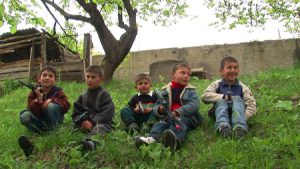
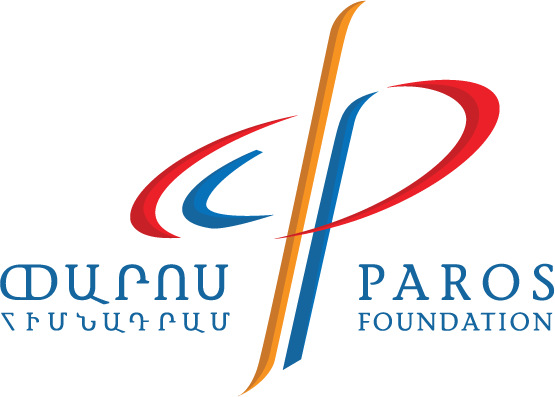
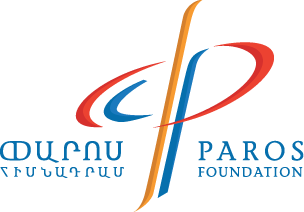
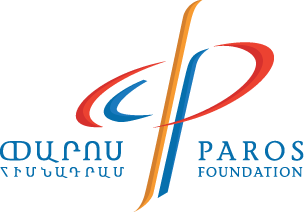
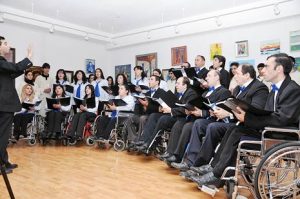
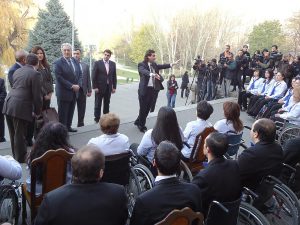 On December 2, Chairman of the RA National Assembly Hovik Abrahamyan received world-renowned singer Placido Domingo.
On December 2, Chairman of the RA National Assembly Hovik Abrahamyan received world-renowned singer Placido Domingo.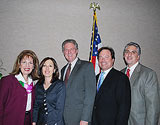


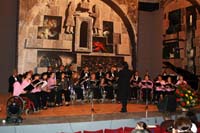
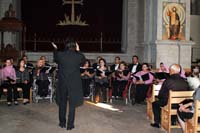
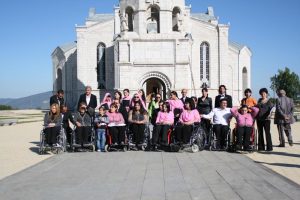
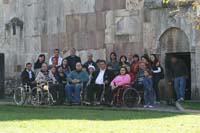 The Paros Chamber Choir Tours Artsakh
The Paros Chamber Choir Tours Artsakh